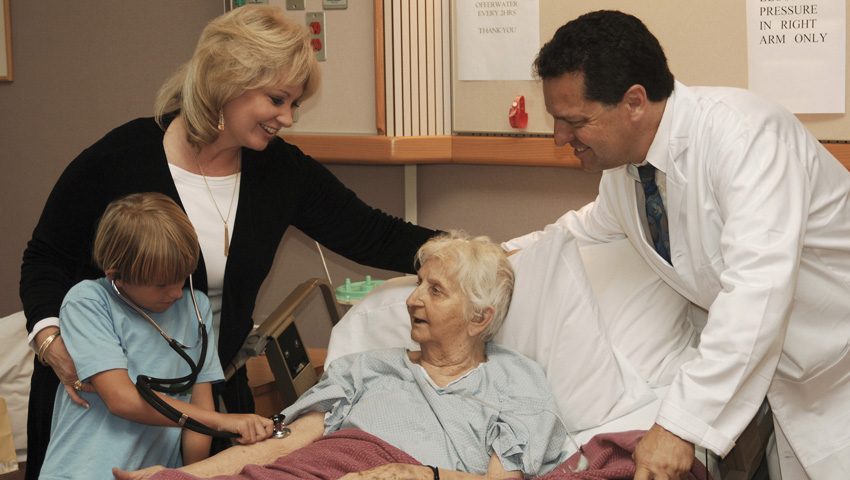
Family Issues May Lead to Elder Abuse
March 26, 2014
Tips for Choosing a Nursing Home
May 2, 2014Coping with nursing home abuse can be difficult for residents as well as their loved ones. When nursing home abuse is first suspected, families and loved ones should take immediate action to attempt to stop the abuse. This may come in the form of filing a complaint, filing a lawsuit, or relocating the resident to another facility, among other actions. Once the resident is out of danger and safe from further abuse, the healing process can begin for the resident and his or her loved ones. In addition to physical wounds that may have been experienced during the ordeal, residents will often face emotional and psychological trauma that should be managed.
Coping Mechanisms
It is important to remember that the coping process will be different for different people, as well as varying types of situations experienced by nursing home abuse victims. Some may need time to heal from physical wounds, while some may require counseling for psychological trauma they may have experienced during the ordeal. Likewise, family members may be faced with emotional or psychological burdens that may need to be addressed as well.
Personalized Recovery
Before enrolling victims or loved ones into any type of coping program, it is important to assess each individual’s needs and requests. This way, everyone is more capable of receiving a treatment appropriate for them and their specific circumstances. Each individual is different in terms of coping abilities, life experiences, and preferences. It is therefore important to ensure that each individual’s coping program meets his or her unique needs.
Physical Recovery
In cases of physical abuse, nursing home residents may need medical attention and recovery time for wounds to heal. When injuries occur, the resident will most likely require a period of rest and light activity to allow injuries to heal. Some residents may need ongoing physical therapy to help with injuries that have debilitating effects. In cases of injuries such as broken bones, residents may need physical therapy to restore function and use of injured areas after healing.
Psychological Recovery
Many will require some form counseling when coping with nursing home abuse. The need for counseling will be more apparent in certain individuals than in others. Additionally, it is nearly impossible to tell which individuals will require certain types of treatment until psychological damage has occurred. Families should closely monitor nursing home abuse victims to check for symptoms and changes in personality that may indicate psychological damage from nursing home abuse.
Signs and symptoms of psychological trauma after abuse may include:
- Physical or emotional withdrawal
- Symptoms of depression, such as sadness and fatigue
- Loss of pleasure or interest in everyday activities
- Lack of interest in individuals and activities once enjoyed
- Excessive fear, anxiety, or apprehension in unwarranted situations
- Unwarranted bursts of anger or aggression
- False dementia, or actions such as rocking, mumbling, and sucking
- Difficulty concentrating or remembering details
- Unexplained loss of appetite
- Irregular sleep patterns, such as too much or too little sleep
Avoiding Blame
In many cases, residents who experience nursing home abuse may blame themselves for what happened. Families, loved ones, and counselors should be sensitive to this issue and enforce the concept that victims are not to blame in these scenarios. Blame can be particularly damaging to the coping process, as it contributes to feelings of low self-esteem and other emotions which can hinder the recovery process.
Counseling Sessions
There are several types of available counseling that can cater to different personalities and circumstances of nursing home abuse victims. Counseling can take the form of one-on-one sessions with trained counselors, or group sessions with victims and their loved ones. The type of counseling chosen should be determined on a case-by-case basis.
Moving on After Abuse
Experts suggest that relocating victims may be a helpful step in coping with nursing home abuse. Even if the abusive staff members have been removed from the facility, remaining in the facility may cause damaging memories to linger in the resident. Relocation to a different facility can help to create the feeling of a fresh, clean slate for nursing home abuse victims.
Sources:
Frawley, Jill. “Inside The Home.” Mother Jones 16.2 (1991): 30. MasterFILE Complete. Web. 1 Mar. 2014.
Johnson, Lee J. “Liability for nursing home care.” Medical Economics 6 Aug. 2004: 68. Academic OneFile. Web. 1 Mar. 2014.

